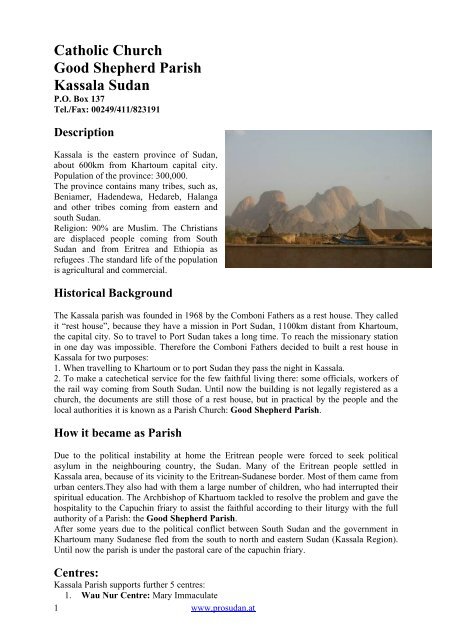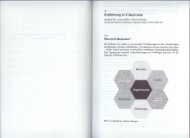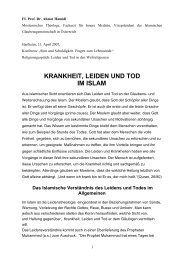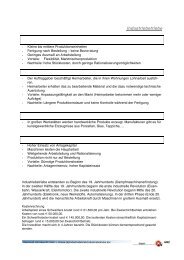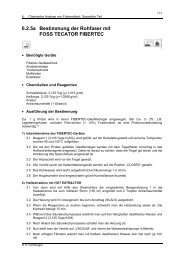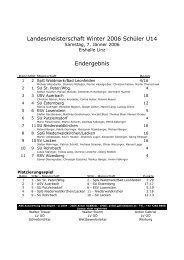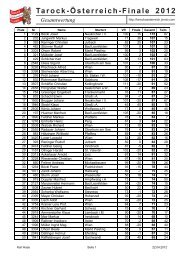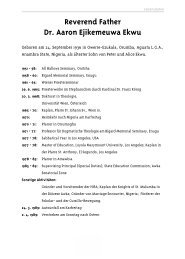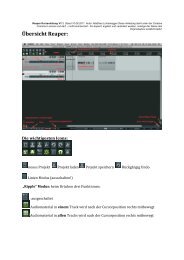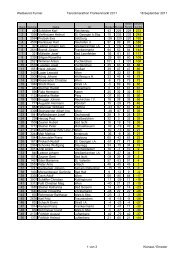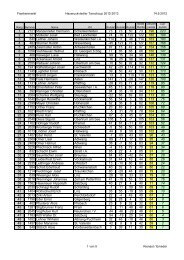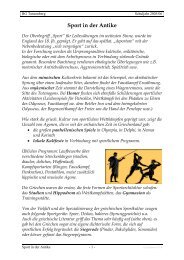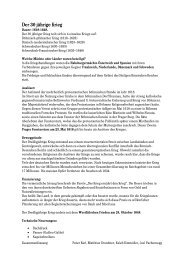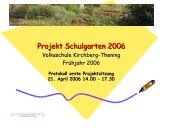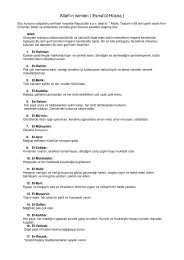Catholic Church Good Shepherd Parish Kassala Sudan
Catholic Church Good Shepherd Parish Kassala Sudan
Catholic Church Good Shepherd Parish Kassala Sudan
- No tags were found...
Create successful ePaper yourself
Turn your PDF publications into a flip-book with our unique Google optimized e-Paper software.
<strong>Catholic</strong> <strong>Church</strong><br />
<strong>Good</strong> <strong>Shepherd</strong> <strong>Parish</strong><br />
<strong>Kassala</strong> <strong>Sudan</strong><br />
P.O. Box 137<br />
Tel./Fax: 00249/411/823191<br />
Description<br />
<strong>Kassala</strong> is the eastern province of <strong>Sudan</strong>,<br />
about 600km from Khartoum capital city.<br />
Population of the province: 300,000.<br />
The province contains many tribes, such as,<br />
Beniamer, Hadendewa, Hedareb, Halanga<br />
and other tribes coming from eastern and<br />
south <strong>Sudan</strong>.<br />
Religion: 90% are Muslim. The Christians<br />
are displaced people coming from South<br />
<strong>Sudan</strong> and from Eritrea and Ethiopia as<br />
refugees .The standard life of the population<br />
is agricultural and commercial.<br />
Historical Background<br />
The <strong>Kassala</strong> parish was founded in 1968 by the Comboni Fathers as a rest house. They called<br />
it “rest house”, because they have a mission in Port <strong>Sudan</strong>, 1100km distant from Khartoum,<br />
the capital city. So to travel to Port <strong>Sudan</strong> takes a long time. To reach the missionary station<br />
in one day was impossible. Therefore the Comboni Fathers decided to built a rest house in<br />
<strong>Kassala</strong> for two purposes:<br />
1. When travelling to Khartoum or to port <strong>Sudan</strong> they pass the night in <strong>Kassala</strong>.<br />
2. To make a catechetical service for the few faithful living there: some officials, workers of<br />
the rail way coming from South <strong>Sudan</strong>. Until now the building is not legally registered as a<br />
church, the documents are still those of a rest house, but in practical by the people and the<br />
local authorities it is known as a <strong>Parish</strong> <strong>Church</strong>: <strong>Good</strong> <strong>Shepherd</strong> <strong>Parish</strong>.<br />
How it became as <strong>Parish</strong><br />
Due to the political instability at home the Eritrean people were forced to seek political<br />
asylum in the neighbouring country, the <strong>Sudan</strong>. Many of the Eritrean people settled in<br />
<strong>Kassala</strong> area, because of its vicinity to the Eritrean-<strong>Sudan</strong>ese border. Most of them came from<br />
urban centers.They also had with them a large number of children, who had interrupted their<br />
spiritual education. The Archbishop of Khartuom tackled to resolve the problem and gave the<br />
hospitality to the Capuchin friary to assist the faithful according to their liturgy with the full<br />
authority of a <strong>Parish</strong>: the <strong>Good</strong> <strong>Shepherd</strong> <strong>Parish</strong>.<br />
After some years due to the political conflict between South <strong>Sudan</strong> and the government in<br />
Khartoum many <strong>Sudan</strong>ese fled from the south to north and eastern <strong>Sudan</strong> (<strong>Kassala</strong> Region).<br />
Until now the parish is under the pastoral care of the capuchin friary.<br />
Centres:<br />
<strong>Kassala</strong> <strong>Parish</strong> supports further 5 centres:<br />
1. Wau Nur Centre: Mary Immaculate<br />
1 www.prosudan.at
2. Hai El Areb Centre: John The baptism<br />
3. Shimal Halanga Centre<br />
4. Wad Sherife Centre: Holy Saviour<br />
5. Aroma Centre<br />
2 www.prosudan.at
Wau Nur Centre<br />
This is the biggest centre. Most o of the faithful live in Wau Nur. According to their standard<br />
of life they prefer to live out side of the city, because it is easy to make a house by grass and<br />
wood. If they stay in the city, they have to rent house, which is according to their living<br />
standard very difficult.<br />
In the centre we have 300 families. Many of them have no work, so their living standard is<br />
very low. The majority of the men are soldiers. In order to bring up their children many<br />
women produce local beer, but with a great risk: According to Sharia law alcohol is forbidden<br />
and so it is not allowed to make local beer. Many times the police takes the women with all<br />
their materials to the police station to be imprisoned almost for three to five months.<br />
Hai El Areb Centre<br />
In the Hai El Areb Centre the faithful are 95 families. We have one part-time catechist. As I<br />
explained above, the living standard of the faithful is very low. The centre is 8km far<br />
westward from the parish.<br />
Aroma Centre<br />
Aroma is 60km outside from <strong>Kassala</strong> on the way to Port <strong>Sudan</strong>. Most of the faithful are<br />
Soldiers. They are 40 families. We have one part-time Catechist who does twice a month<br />
pastoral activities. We don’t have a building in the centre, because we didn’t get a permission<br />
to build some. Now we are on the way to to be given the permission to build a house.<br />
Shimal Halanga Centre<br />
Since 1992 many displaced families were in the Shimal Halanga Centre: Through the<br />
expansion of the city all the faithful leave the place. They change to Wau Nur Centre and<br />
some of them go to dislocated Centres. This centre is in a distance 3km north from the parish.<br />
Wad Sherife Centre.<br />
Wad Sherife is a big refugee Camp of Eritreans and Ethiopians. There are 30,000 refugees,<br />
who are under the assistance of the UNHCR.The <strong>Catholic</strong> families around the camp are 165.<br />
Since 1997 the catholic families were about 300.<br />
The centre is in 25km distance North-East from <strong>Kassala</strong>.<br />
The living standard of the refugees is very poor. Always they attend their ration which they<br />
receive every three months from the UNHCR. But, with this ration they can not raise their<br />
children in a sufficient way. The <strong>Catholic</strong> <strong>Church</strong> opens the school since 1983 in the camp.<br />
For the pastoral service we did our best: weekly holy mass, twice a month catechetical<br />
service.<br />
The problem of the <strong>Parish</strong>: Financial need and economical poverty of the<br />
faithful.<br />
As we explained above the Capuchin friary takes the responsibility to open intermediate and<br />
senior school, since 1977, for the Eritrean rand Ethiopian refugees. At present it hosts 1200<br />
students. It is a school which gives equal opportunities to both Christian and Muslim children.<br />
For this reason it is kept in high esteem by both Christians and Muslims. Our main objective<br />
3 www.prosudan.at
in fact is to give the children a basic education and, at the same time, help them to grow up in<br />
a peaceful way with reciprocal respect, regardless of their different religious doctrines.<br />
In these long years of our educational and pastoral activities, thanks to God, we have been<br />
supported by many organizations and men of good will. This has enabled us each year to<br />
finish the school year without incurring in debits. Now the time and the situation have<br />
changed in a tremendous way: According to the salary of teachers has increased very<br />
much and because of economical poverty of the faithful - we cannot attend a<br />
contribution from the faithful – the budget of the parish became very tight<br />
<strong>Parish</strong> Projects:<br />
1. A Tent for celebration during the big feasts: At the big feasts the church cannot take<br />
all the faithful during the celebration, because the building is very small. So we are<br />
compelled to celebrate outside in the compound of the church. We do the Holy Mass<br />
morning and evening. For the morning mass we usually provide a tent and chairs,<br />
hiring from the market. During the morning mass it is difficult for the faithful to<br />
stay without an umbrella because of the heat. The costs we have to face to during the<br />
celebration are very high: over 500 Euro! Our capacity and the contribution of the<br />
faithful could not cover such expenses. The costs of a tent will be about 10 Million<br />
SDD, equal to 3500 €<br />
2. Loudspeakers for the celebrations: The price for a system of Loudspeakers is about<br />
8 Million SDD, which is equal to 3000 €.<br />
3. Chairs: 1000 chairs for 5 centres will cost 20 Million SDD, equal to 7000 €<br />
4. Benches: 150 benches for the committees and for catechetical assemblies for 5<br />
centres will 4,5 Million SDD, equal to 1700 €<br />
5. Transport and Breakfast for voluntary Religion teachers: 3 Million SDD per Year,<br />
equal to 1100 €<br />
6. Feeding of 20 children in Wad Sherife Centre: 15 Million SDD, equal to 5600 €<br />
7. Generator or Solar System???<br />
4 www.prosudan.at
Wau Nur Centre<br />
Mary Immaculate Centre<br />
The Wau Nur pastoral-centre is the biggest offshoot of the parish of <strong>Kassala</strong>. The<br />
center is situated approximately 7 km north of the centre of <strong>Kassala</strong>. After a twenty minutes’<br />
trip, one comes into an area, that is admittedly positioned geometrically (rectangular ordered<br />
crossroads, that form the residential-area somehow), but on the other hand it cannot hide its<br />
poverty: Everywhere wood-cottages with reed-roofs and reed-walls or cottages out of clay<br />
with reed-roofs. Here and there one can see a donkey-cart transporting a water-barrel,<br />
occasionally teenagers ride around by bicycle or even by motor cycle. The chickens and the<br />
goats run in the wide streets, that can be regarded quite also as communication-centres for the<br />
people. Curiously, more and more children and teenagers appear to see the visitors.<br />
The population of this area consists of<br />
refugees from the former civil war-area of<br />
the South-<strong>Sudan</strong>. The standard of living of<br />
these people is very low, and in accordance<br />
with this low standard, these people want to<br />
live also outside the city-area because it is<br />
easier there to build houses from reed and<br />
wood. Inside the city they would have to<br />
rent houses, in which they could not afford<br />
the rent.<br />
Many of the people here are unemployed which results in a very low standard of living.<br />
Soldiers are the majority of those men, who have work, and thus they get a small income.<br />
With the women, the situation of employment is especially bad. In order to rear up their<br />
children many of them produce "local beer". So they obtain a low income through its sale. But<br />
the brewing of beer is a very risky issue: So much in the South-<strong>Sudan</strong> beer may belong to the<br />
reason-foods, however, it is prohibited in the Muslim embossed north according the Islamic<br />
law, the Scharia. If women will be caught by brewing beer, they will go to prison for three to<br />
five months. Many times the police will take also away most of the materials belonging to the<br />
women.<br />
Because the distance to the "<strong>Good</strong> <strong>Shepherd</strong>" - <strong>Parish</strong> in<br />
the centre of <strong>Kassala</strong> however is rather big, the pastoralcentre<br />
of Wau Nur has been opened in this area. The place<br />
is approximately big 25m times 25m large and comprises a<br />
chapel (about. 4m times 15m big), sanitary facilities and a<br />
surrounding wall. At the moment bigger events take place<br />
outside, smaller meetings of activists as well as catechism<br />
and primary school-instruction take place in the chapel.<br />
The Wau Nur centre takes care of approximately 300 Christian families, what corresponds to<br />
a number of approximately 1500 believers. Events and church services always take place in<br />
the evening, because then the people are at home from work.<br />
There is also a plan to set up further buildings on the site: A school class for children for<br />
catechism and primary school-instruction. Further it is planned to build a multi-function-room<br />
for women ("women’s hall"), it should serve as meeting place and as a vocational training<br />
centre for them. The women should learn to sew there in order to have thus an alternative to<br />
5 www.prosudan.at
making money by illegal brewing of beer. A sacristy should be added at the west-side of the<br />
church. Finally the toilet room should be removed and built up again outside the enclosure.<br />
The planned activities are to be seen as the beginning of a process being aimed at a maximum<br />
of independence and self-support.<br />
Toilettee<br />
sacristy<br />
Celebrating Easter in the Wau Nur Centre:<br />
6 www.prosudan.at<br />
N<br />
Kapelle<br />
Eingang<br />
„kindergarden“<br />
Womens’ Hall
Enclosed, the calculations to the planned activities are presented:<br />
Women Hall:<br />
Material Local Currency Euro<br />
Zinc 612.000 229.2<br />
Cement 566.000 211.9<br />
Stone 450.000 168.5<br />
Woods for roof 540.000 202.2<br />
Bricks 600.000 224.7<br />
Sand 480.000 179.7<br />
Door 280.000 104.8<br />
Windows 770.000 288.2<br />
Cabord 650.000 243.4<br />
Table only one 350.000 131.0<br />
2 Sewing Mach. 845.000 316.4<br />
Contractor 2.300.000 861.4<br />
Total 7.558.000 2.830.7<br />
Secresty Calculation<br />
Material Local Currency Euro<br />
Zinc 255.000 095.5<br />
Cement 256.000 095.8<br />
Stones 300.000 112.0<br />
Woods for roof 240.000 089.9<br />
Bricks 360.000 134.8<br />
Sand 240.000 089.9<br />
Door 280.000 104.8<br />
Windows 440.000 164.8<br />
Cabord 450.000 168.5<br />
Table 350.000 131.0<br />
Contractor 1.600.000 599.0<br />
Total 4.471.000 1.787.2<br />
7 www.prosudan.at
Shimal Halanga Centre<br />
The pastoral-centre of Shimal Halanga is about 3km north from the <strong>Good</strong> <strong>Shepherd</strong> <strong>Parish</strong> in<br />
<strong>Kassala</strong>. Since 1992, many displaced people coming from South-<strong>Sudan</strong> have lived in the<br />
settlement-area of Shimal Halanga. Fr. Ghebrai estimates the number of the now here living<br />
families at 200-300, what corresponds to a number of 1200 to 1500 inhabitants. Through the<br />
expansion of the city many families have been forced by the authorities to leave the<br />
settlement-area. They change to Wau Nur or leave <strong>Kassala</strong> at all.<br />
Some time ago there were many believers in Shimal Halanga , now the families due to the<br />
swift growth of the city move away to Wau Nur. About 10 families still gather round the<br />
centre of Shimal Halanga. They live near the pastoral-centre.<br />
Formerly Moses the catechist lived inside the pastoral-building with his family. However the<br />
roof of the meeting-centre collapsed because it was dilapidated. The house stands empty since<br />
that time and is used only for the purpose of meeting of the faithful of this area and for<br />
religious further education. It should be repaired soon, otherwise the showers of the rainy<br />
season make the damages irreparable. In the centre no masses are celebrated. The faithful<br />
move by taxi to <strong>Good</strong> <strong>Shepherd</strong> <strong>Parish</strong> to attend the service.<br />
Erneo Mohammed lives with his family here.<br />
He has 11 children and is the chairman of the<br />
parish council since seven years.<br />
Since 2002, more and more young men moved<br />
into the environment of Shimal Halanga from<br />
the regions around El Gedaref and Port <strong>Sudan</strong> in<br />
order to work in the local brick-factory. Their<br />
residential-area looks like a military hiding<br />
place with trenches, and they called it Kandahar<br />
after that city in Afghanistan where the Taliban<br />
were expelled by the Americans at the time of<br />
the foundation of this settlement.<br />
While the previously mentioned families live around the centre, the factory workers live in 1<br />
km distance to the pastoral-centre. The number of the here living workers is about 50. Each of<br />
them has a wood-grass-cottage. However, that is only temporary since all of them would like<br />
to build a better house. Partially these factory workers have already established families.<br />
8 www.prosudan.at<br />
The people have a very good community<br />
among each other here. They meet in the<br />
pastoral-centre to for religious instruction.<br />
To the church services in the centre they<br />
move by rent-cars - like the families, who<br />
live around the centre.<br />
Their aim is to reactivate the dilapidated<br />
centre and then to organize a church<br />
service there every Friday and Sunday.<br />
Below a calculation of the costs of the
eparation of the building:<br />
This is the Calulation of the house in Shamal Halanga<br />
Material Local Currancy Euro<br />
Zinc 1.624.000 0.608.2<br />
Wood for roof 1.650.000 0.617.9<br />
Cement 1.460.000 0.546.8<br />
Bricks 1.250.000 0.468.1<br />
Windows 1.870.000 0.700.3<br />
Main Gate 0.700.000 0.262<br />
Contracter 03.500.000 1.310.8<br />
TOTAL 13.014.000 4.874.0<br />
Toilet Room<br />
Material Local Currency Euro<br />
Zinc 120.000 044.9<br />
Cement 160.000 059.9<br />
Stones 150.000 056.0<br />
Bricks 180.000 067.4<br />
Two Doors[small] 320.000 119.8<br />
Two small windows 110.000 041.1<br />
Total 1.040.000 1042.67<br />
9 www.prosudan.at
Hai El Areb<br />
Centre<br />
John the Baptist<br />
The Hai el Areb pastoral-centre one<br />
will find approximately 8 km west of<br />
<strong>Kassala</strong> central-parish. 35 Protestant<br />
families and 36 <strong>Catholic</strong> families<br />
belong to the Christian population<br />
here. Both Christian confessions use<br />
the centre. The standard of living of<br />
these people is very low.<br />
The site is approximately 25 times 25 m² big and is surrounded by a clay-wall. A full-time<br />
catechist is living in the centre. Beside his residential room/dormitory there is a small school<br />
class , where the children get elementary education and religious instruction. The altar for the<br />
mass is outside on the site. Every Thursday evening, a mass for the believers is celebrated<br />
under free sky.<br />
The pastoral-centre has a water<br />
pump with water-connection.<br />
However, there is no electricity and<br />
the rent for an electric-generator<br />
(e.g. for Easter) is very high.<br />
Therefore, an electric connection is<br />
desirable. At the same time it should<br />
be considered, whether a<br />
photovoltaic system calculates itself.<br />
As the existing class-room is very<br />
small, it is planned to build further<br />
class-rooms in order to be able to<br />
teach more children there.<br />
10 www.prosudan.at
Altar<br />
entrance<br />
toilette<br />
11 www.prosudan.at<br />
Class room<br />
living room
Wad Sherife Centre.<br />
The Holy Savior<br />
Approximately 25 km north easterly from <strong>Kassala</strong>, one car-hour on the sand-track, there is the<br />
refugee-camp of Wad Sherife. Passing first the original mountain-forms of the <strong>Kassala</strong> Hills<br />
one reaches big plantations with banana-groves, plantations of millet and maize. That area<br />
seems to be fertile. That is not any miracle either, since this area is very close to Gash-River<br />
coming from Eritrea. Although this river during our visit was entirely dry, it provides the<br />
agriculture by sufficient subterranean water reservoir, which is capable to feed the entire<br />
plantations.<br />
Wad Sherife is found at the edge of this beautiful oasis already in the dust-dry desert. Here is<br />
one of the biggest camps for refugees from Eritrea and Ethiopia. In the 80ies, this camp<br />
registered a record number of over 100.000 refugees, now there are only about 30.000 people<br />
under the protection of the UNHCR. This camp exists since 1977. Many refugees have now<br />
been living here for 25 years. They were able to go back to their homes anytime, unless they<br />
had to face big problems in their home country, which made a return almost impossible:<br />
Recently in 1998 warfare flared up between Eritrea and Ethiopia.<br />
The refugees are very poor. As there is not any help of the state <strong>Sudan</strong>, the UNHCR is<br />
responsible for them. The Office is in the centre of Wad Sherife. The people live mainly on<br />
the food-rations allotted every three months there. However, this care is not enough to nourish<br />
the children sufficiently and to bring them up.<br />
As a result of the precarious economic situation of the individual refugee-families many men<br />
are forced to earn money as day labourers. They look for casual works in the camp or work as<br />
a fieldworker on the plantations. Their income amounts about 5 <strong>Sudan</strong>ese Newpounds, which<br />
is equal to 2 Euro on the day.<br />
For the women, beer-brewing represents the main-income. This brings them into severe<br />
danger, because production and consumption of alcohol is prohibited in the <strong>Sudan</strong> under the<br />
Islamic law. Alternative sources of income therefore are in demand.<br />
The <strong>Catholic</strong> <strong>Church</strong> runs a big school in Wad Sherife like the one in <strong>Kassala</strong> since 1983.<br />
Approximately 200 students get education from primary school to maturity examination. Fr.<br />
Ghebrai Beidemariam is the responsible for these two schools.<br />
The Pastoral Centre (Centre of the Holy Savior)<br />
In some distance of the big Eritrean<br />
Refugees' School in Wad Sherife, the<br />
pastoral-center of the camp is situated.<br />
The area is approximately big 30m<br />
times 50m large. On the place we find<br />
a chapel, a shelter for schoolinstruction,<br />
a small kitchen and a small<br />
apartment for the catechist. Beside it<br />
we see remains of a collapsed schoolbuilding.<br />
12 www.prosudan.at
25 Eritrean refugee-families from the group of the Habescha-tribes (each of them having up to<br />
6 children) are members of the parish. They live in the surroundings of the centre and belong<br />
to different tribes<br />
Further 100 families that belong to the tribe of the Kunama, live in some distance. (The<br />
Kunama are a group coming from the southwest of Eritrea, ethnologically and linguistically<br />
however they differ quite a lot from the Habeshagroups<br />
in Eritrea). The Kunama still are a very<br />
original people-group, that still has a big desire for<br />
development. Above all among the women, the need<br />
of catching up education is big. There are several<br />
women-groups that meet in the "class-room"<br />
regularly to be instructed in sewing, cooking, and<br />
house-keeping in order to be able to provide the daily<br />
needs of the family independently. The Kunama-men<br />
work mainly in the fields of the surrounding<br />
plantations.<br />
An important concern of the parish is the education of<br />
children and teenagers. In the year 2005, the schoolbuilding<br />
on the place collapsed. Up to 500 students<br />
until that time visited this school. At the moment only<br />
a rubble-pile can be found at this place. Only 13<br />
children are taught in the shelter (without walls)<br />
beside the church in three school-steps momentarily.<br />
There are still newcomers, who are taken in here. A<br />
cook is responsible for the feeding.<br />
Twice weekly, Fr. Ghebrai comes to Wad Sherife, in order to take care of administrationworks,<br />
to accompany pastoral-work and to coordinate the social activities of the centre.<br />
The chairman of the pastoral-committee of the Centre of the Holy Savior is Ghebrezghi Fidel.<br />
He lives with his family near the pastoral centre.<br />
As Sunday is a working day, the mass is celebrated on Friday because that is the Muslim<br />
week-holiday. In the damaged chapel, the masses are celebrated for smaller groups. Most<br />
services and all sacred holidays are celebrated outside because the chapel is too small.<br />
Because there are many different groups of believers, the celebrations are apportioned. Fr.<br />
Ghebrai says the mass in Tigrinya (the official language in Eritrea) and in the Kunamalanguage<br />
according to the same-named tribe differing fully from Tigrinya.<br />
The most urgent measures that have to be done<br />
The chapel must be repaired. Reparations having been carried out are destroyed again during<br />
the rainy season, however. Every year, 2000 New pounds (=800 €) are spent for mending the<br />
damages. This is always too little, however, so that the parish has to add the open amount.<br />
For a final repair better material would have to be brought here: e.g. a new corrugated ironroof<br />
for the chapel (instead of the present thatch) is urgently necessary so that the damages<br />
could be stopped done by the water during the rainy season. The costs can be determined<br />
however not yet, but there will be a calculation soon.<br />
13 www.prosudan.at
In planning is: 1 kitchen, 1 bedroom for the cook. There is a plan to improve the school too.<br />
The shelter should be equipped with walls so that the individual school classes get a certain<br />
separation (3 classrooms, 1 abidance-area).<br />
Furthermore the parish wants to buy a big tent with variable size. The costs for one shelterelement<br />
are one Euro, 1 camp element (= 1 unit) is equal to 2,5 New <strong>Sudan</strong>ese Pounds , the<br />
costs for the whole camp would be 10.000 new pounds (= 4.000 €)<br />
WC damaged<br />
Kitchen<br />
class Tree<br />
Destroyed<br />
School<br />
Entrance<br />
Shelter for teaching<br />
14 www.prosudan.at<br />
WC<br />
Chapel


